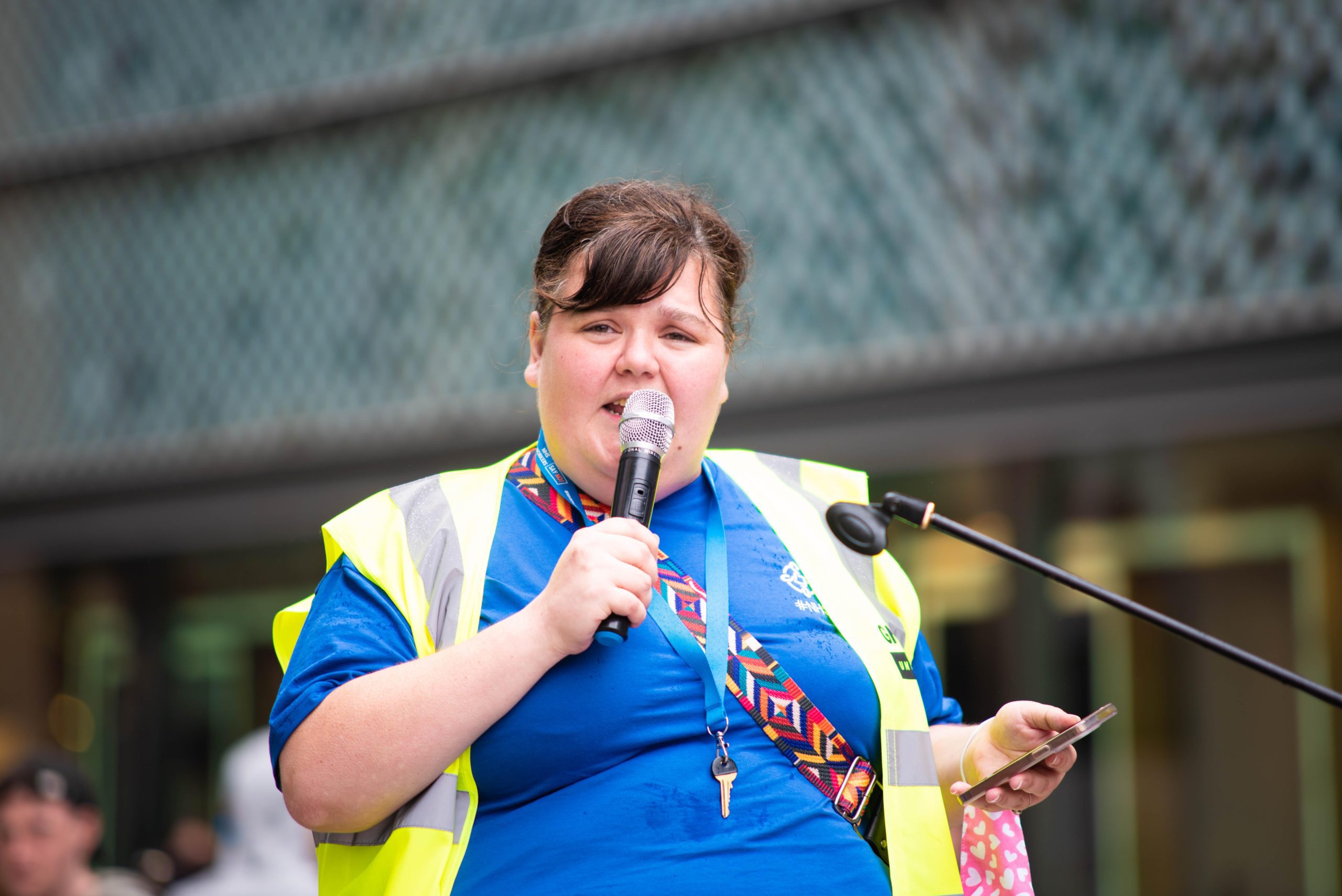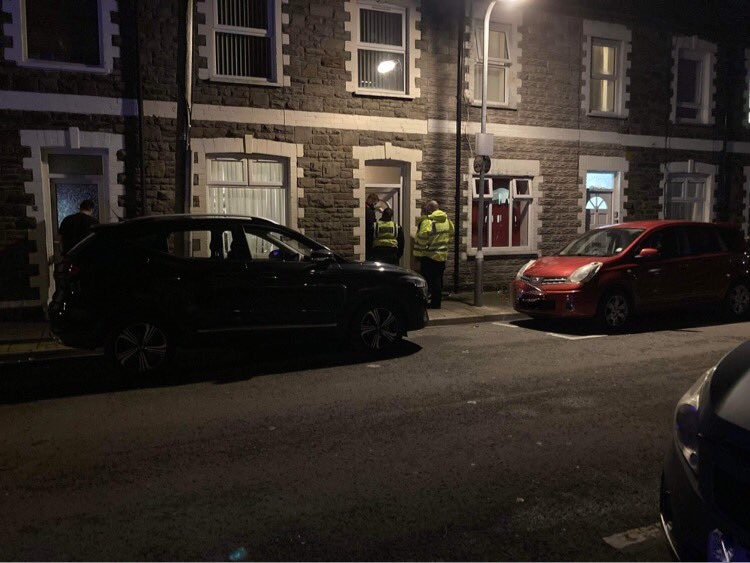
More Welsh NHS Workers Reject Pay Deal As Pressure Grows On Unions To Coordinate Strike Action
All major unions in the Welsh NHS have seen overwhelming votes to reject a 3% pay deal and are now entering talks with Welsh Government. But workplace activists have called on unions not to delay action and coordinate strike ballots now.
Image: Nurse Rhian Bethell, of NHS Workers Say No. The group is calling for coordinated strikes over pay. Photo by Mehek Seth
The biggest trade union in the Welsh NHS has said that 90% of its members oppose the Welsh Government’s imposition of a below-inflation 3% pay deal, and a strike ballot could be triggered if the offer is not improved upon.
The union says that thousands of nurses, healthcare assistants, ambulance workers, hospital porters, cleaners, cooks, admin staff and other workers it represents in the Welsh NHS have given their clearest indication yet that 3% is too low.
UNISON Cymru Wales’ health committee has voted to support ongoing talks with Welsh Government to improve the deal.
“Should these urgent talks fail to boost the award, the committee has agreed to recommend an industrial action ballot be triggered,” the union said in a statement.
Paul Summers, UNISON chair of Wales health trade unions, said that after “the toughest eighteen months of their lives,” NHS staff “deserve better than Welsh government imposing a below-inflation pay award.”
According to analysis by NursingNotes, if the 3% deal goes through, it would amount to real terms cut of £547 a year due to the sky-rockiting price of living.
Unions and workers are demanding a far more significant rise, with most backing calls for 15%.
‘Taken for granted’
Other unions in the Welsh NHS have also announced the outcome of their own pay ballots, which have seen similarly strong rejections of Welsh Government’s imposition of the deal.
On Monday, Unite Wales, which represents 6,000 NHS workers in Wales, said that a majority of its members had rejected the offer, with 64% saying they would be prepared to take strike action over the issue.
They said the offer had made workers angry and feeling ‘Taken for granted’, ‘undervalued’ and ‘ignored’
Like UNISON, the union is now in discussions with Welsh Government to improve the value of the award.
“After months of lobbying Welsh government on the issue of pay we are pleased to report that meaningful discussions have now started,” Richard Munn, lead officer for NHS in Unite Wales, said. He added that it was “too early to say whether a solution that will satisfy our members will emerge” but the union was committed to talks.
Earlier in the month the Royal College of Nursing announced the results of its ballot in Wales, with 94% of members voting to reject the deal. The union has around 25,000 members in Wales, of which around one third took part in the poll.
And another major NHS union, the GMB, announced last week that over 9 out of 10 of its members had voted to reject the pay deal and it would now move to an industrial action ballot.
The union’s ballot results refer to England and Wales as a whole and no Wales specific results have been released, but GMB did confirm to voice.wales that a majority of its Welsh members had rejected the deal.
NHS workers in England are also facing the imposition of a 3% pay deal from the Tory UK Government, and unions have run ballots for both countries concurrently.
NHS Workers Say No Wales, a cross-union grouping of grassroots workers which have been at the forefront of fighting for a 15% pay rise, have previously told voice.wales that industrial action should be planned in conjunction with workers in England.
‘We need decisive action from unions’
But the group have also warned against a lack of coordination by unions and lengthy delays in getting official strike ballots off the ground in the first place.
In a statement shared online, the group says that all major unions have a mandate to move to formal industrial action ballots, and they must now coordinate big campaigns to mobilise the numbers needed to beat the anti-trade union laws.
They warn that delays and further ‘indicative ballots’ will lead to ‘fatigue’ among workers. “We need to see joint decisive action from our unions,” the group says.
Negotiations with the Welsh Government are unlikely to result in a significantly higher offer, and the 3% currently on the table is far below the 15% workers have been demanding to address the staffing crisis and make up for a decade of falling pay.
We are continuously working short staffed’
For NHS workers that have previously spoken to voice.wales, accepting a low pay deal is not an option, and could lead to mass demoralisation.
They are furious that after risking their lives during the pandemic and seeing their colleagues die, they are now being asked to accept what amounts to a pay cut.
Health workers have also described a staffing crisis in the NHS, with workers leaving due to stress and low pay.
With the labour shortage in other parts of the economy also affecting the NHS, workers may feel angry if they are forced to accept a low pay deal at a time when wages are rising in other sectors as bosses scramble to recruit staff.
Like care work, women are also often the ones who will bear the brunt of a pay cut.
“We are continuously working short staffed, which is unsafe and has a huge impact on our mental health and wellbeing, because we can’t give the care that we are trained to give,” one female nurse recently told us.
“We often miss breaks and leave work late because we put our patients first.”
Those with young children have also spoken about how they have had to miss out on their children’s lives because they are working long and unsociable hours just so they can afford to get by and pay the bills.


